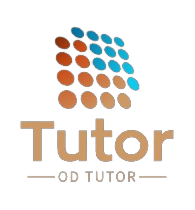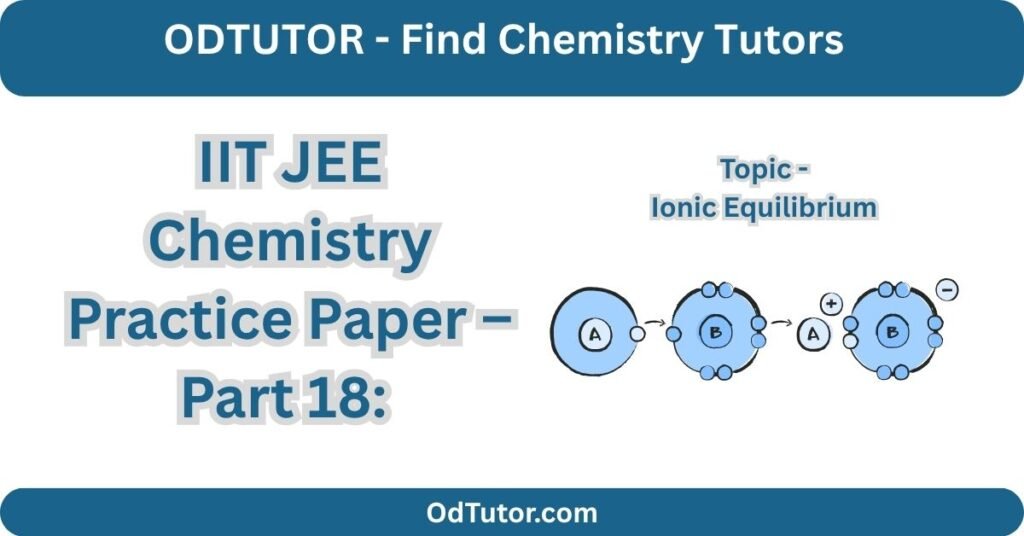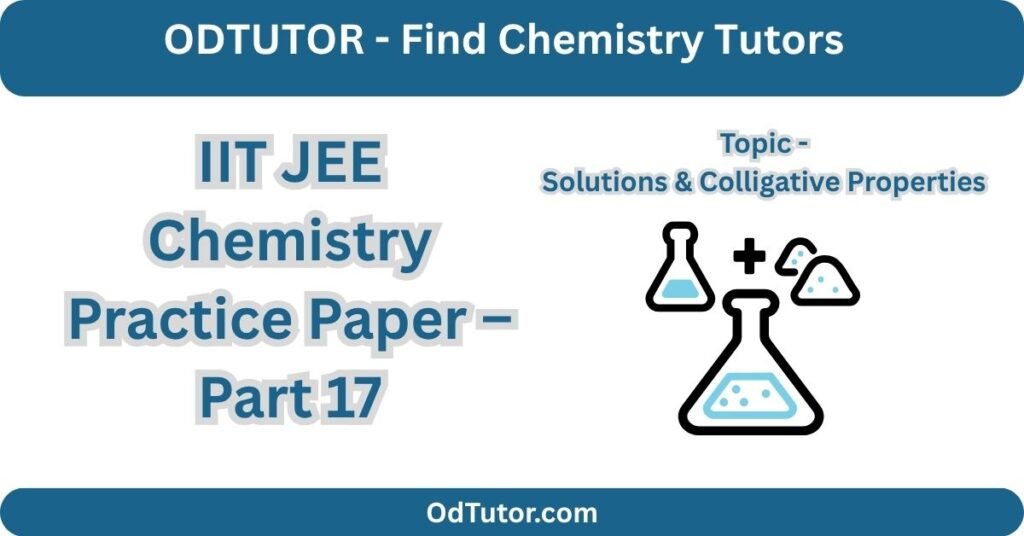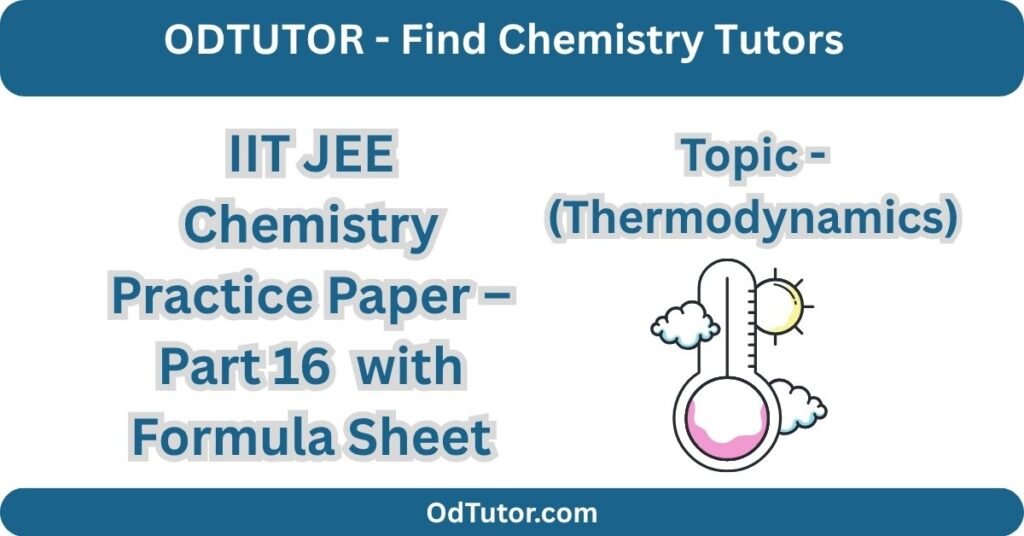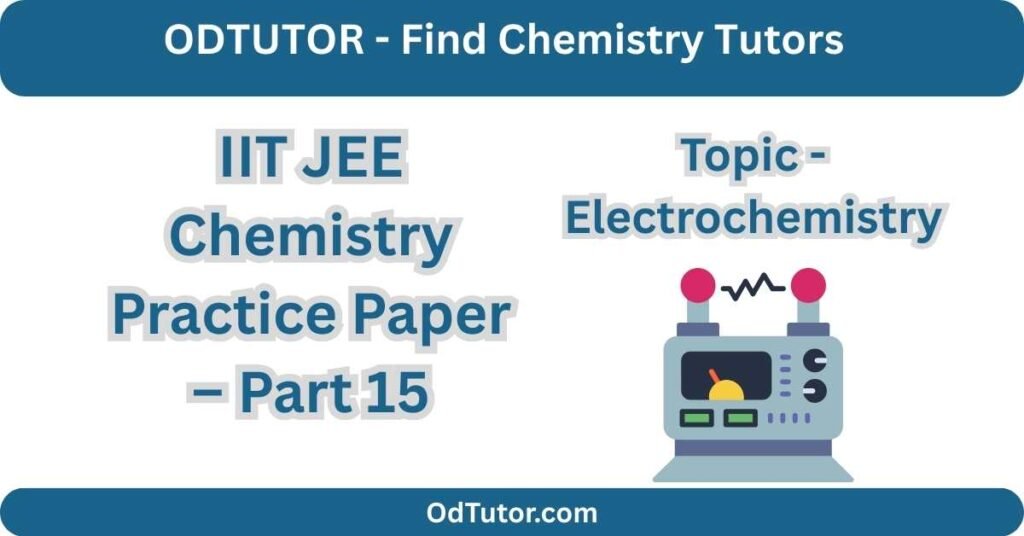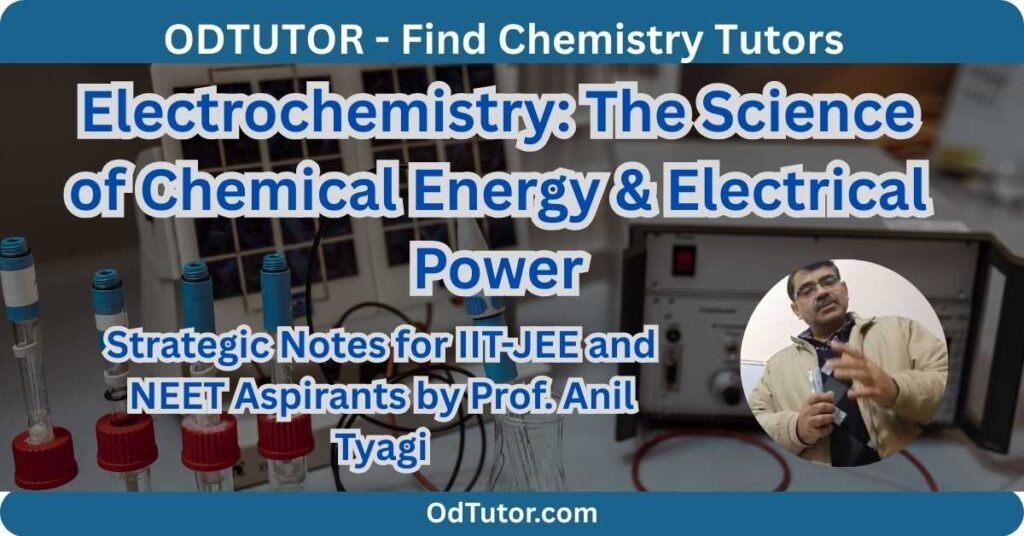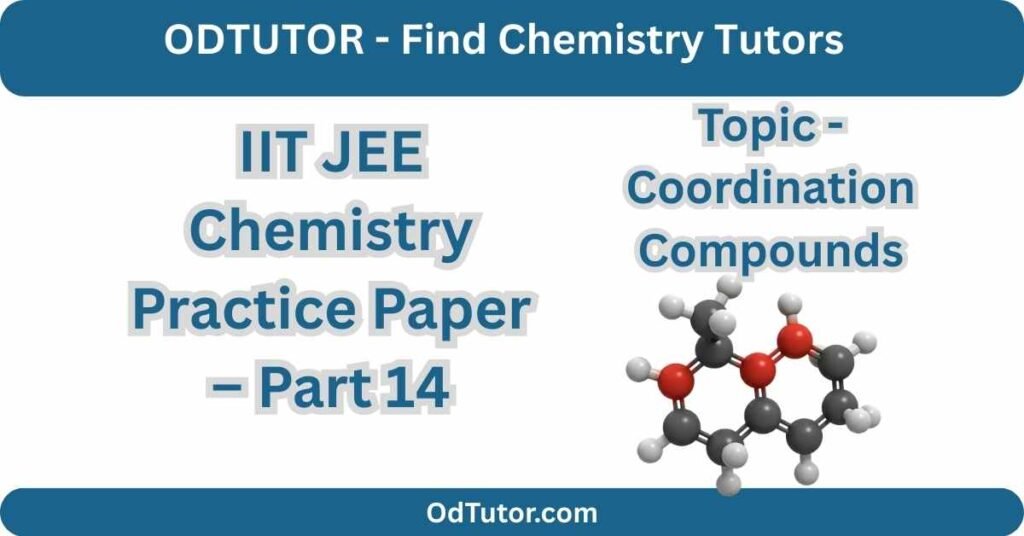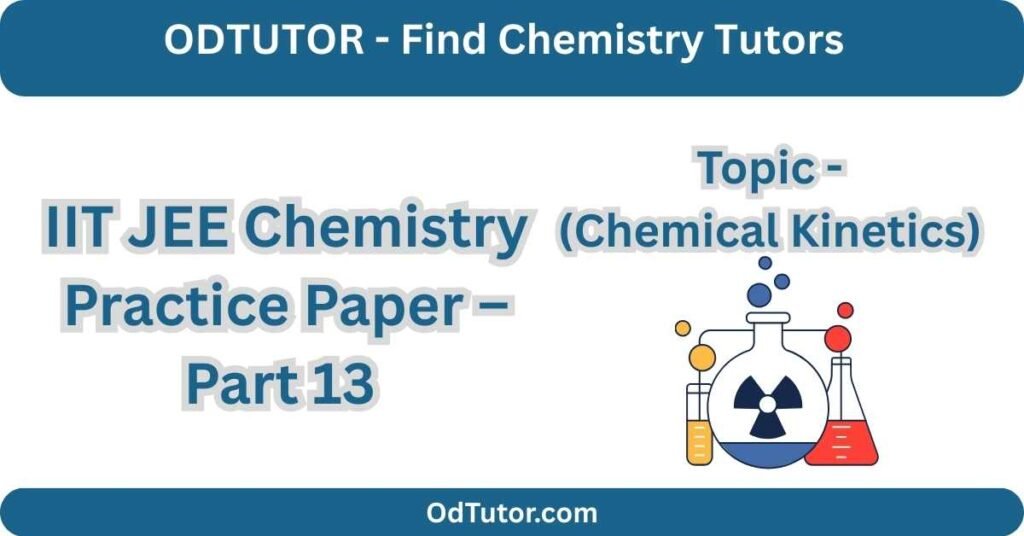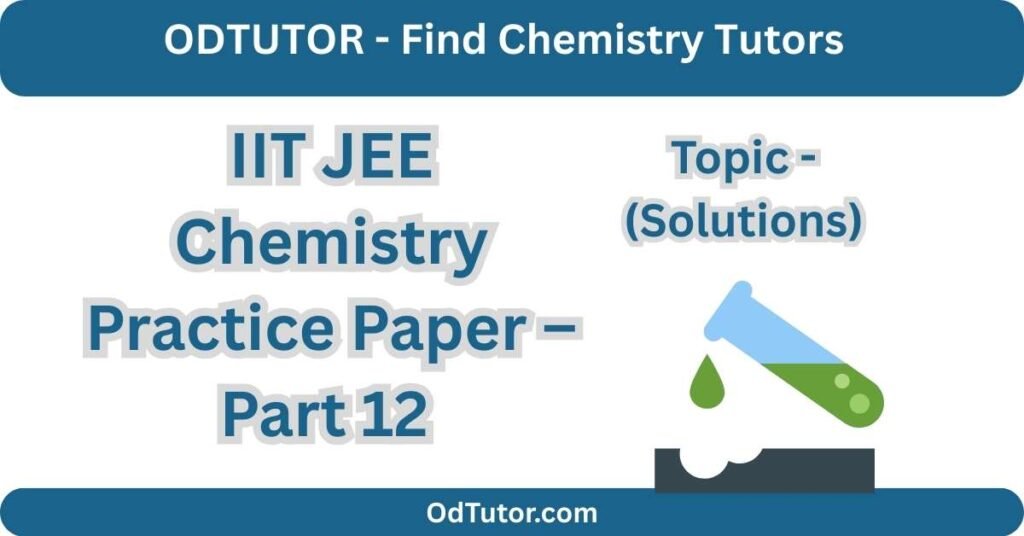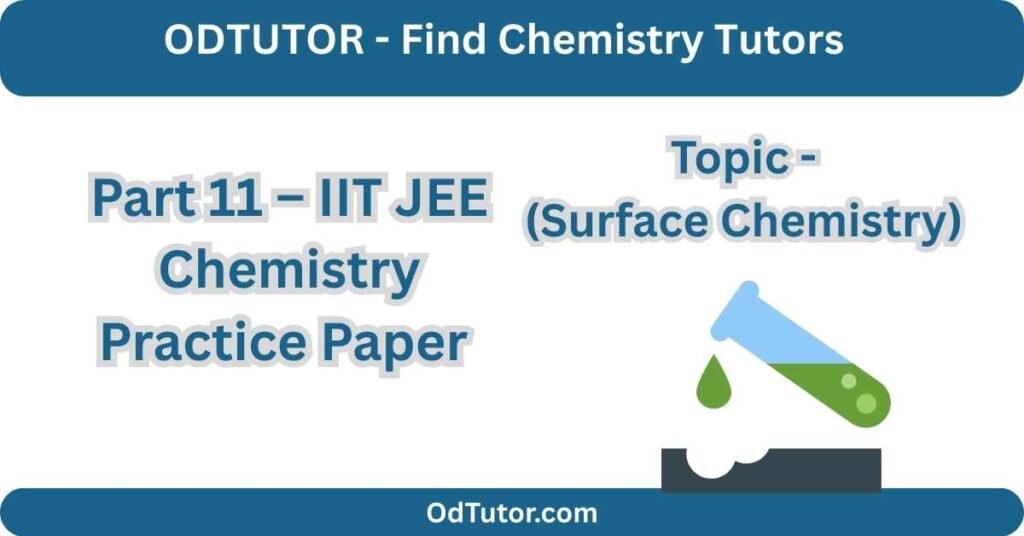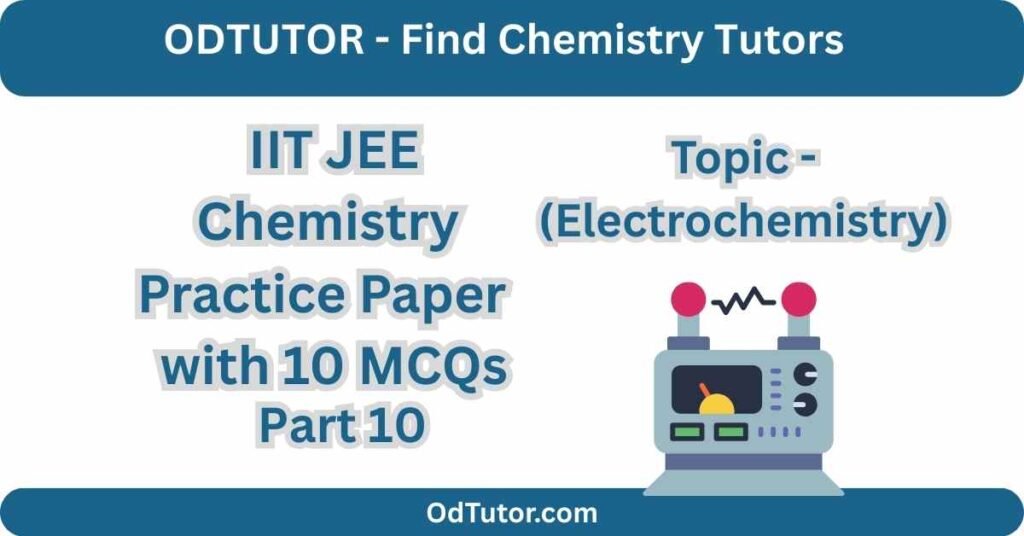IIT JEE Chemistry Practice Paper – Part 18: Ionic Equilibrium with Notes
Topic: Ionic Equilibrium Type: Multiple Choice Questions (MCQs) Marks: +4 for each correct answer Negative Marking: 0 (Practice Mode) The pH of 0.001 M HCl solution is: 1 2 3 4 Which of the following is a strong electrolyte? CH3COOH NH4OH NaCl H2CO3 For a weak acid HA, the degree of dissociation (α) in dilute …
IIT JEE Chemistry Practice Paper – Part 18: Ionic Equilibrium with Notes Read More »
